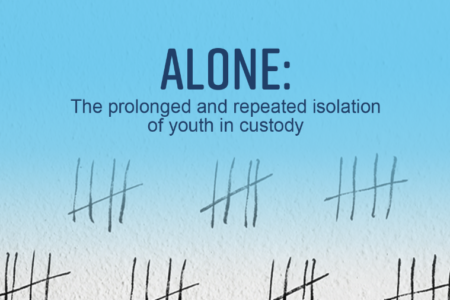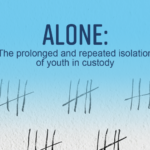History-writing for a time with a hazy future
“You can beat us with wires, you can beat us with chains/ You can roll out your rules, but you know you can’t outrun the History Train.”
— Paul Simon, Peace Like a River
“Keep away, old man, you don’t fool me,/ You, and your ‘History’, won’t rule me.”
— The Who, Slip Kid
“History is made to seem unfair.” — R. E. M., I remember California
“The human race just kept rollin’ on/ rollin’ through the fighting, rollin’ through the religious wars/ rollin’ through the temple walls and the Church’s exposed sores…” — Neil Young,Fallin’ from Above
By Charles Jeanes
The habit of thinking typically
My life-long fascination with history is like all long-held patterns in a person’s mind: it has an entrenched thought-path, and a predictable quality. Here is the typical habit of my mind when I describe what History is, and is for.
History is a record of human experiments or experience, from which one can draw with broad strokes one’s conclusions about what a human being is, and what humans in the mass are likely to do.
I compare the history we learn about whole societies, to the history each individual person remembers from their past personal experience. As I know my own past and draw conclusions from it about myself, so do people draw conclusions about human beings in general – our behaviour and our patterns – from History.
And I frequently warn students or readers of my own history teaching and writing, be conscious that it is never true to say “History teaches…” History is not a person, and it does not teach. Historians teach, and historians are as fallible as any human, and ought to be doubted when they offer up “lessons from History.”
Learning from History
I also have a typical response to anyone who asks me about why we repeat history, or appear to. Political acts are the best example. Why, for instance, do governments continue to believe that war is a rational choice of policy to achieve some goal, rather than peaceful methods?
War is never stopped merely by the argument that history provides evidence that war does not have positive results for the victor, that history can demonstrate that violence and force ultimately fail to accomplish the intention of those who choose war. Every king, leader, ruler, statesman, or general who started a war is convinced that the circumstance of his or her choice for war is unique and unprecedented.
There has never been a perfect parallel in history for the situation in this present moment, the governing powers are certain, at the time that their war is begun. No one can convince the leader who has chosen war that he or she is repeating a past mistake. No war is an exact copy of the one in this moment. Every historical situation is so particular and one-of-a-kind that History cannot be evidence for turning aside from war.
What I say about war is as true for other kinds of activity in human history. Humans cannot learn from the history of other people. My experience is not yours, and you are free to say your actions must be based on your own experience, not mine. I can even convince myself that what I am choosing to do, although it appears to be exactly the same action I have taken before with bad consequences, is unique, not at all similar to an earlier action. I know my exceptional circumstances, I know how and why this present situation is not a copy of a former one.
History can therefore never truly repeat itself, because the people and circumstance in each time, in every event or phenomenon in the historical record, are never identical from one occasion to another. Even the same person is not identical with the person he or she was before this present situation, such is the nature of human changeability.
Perspectives for a new opinion of future prospects
I have summarized in the foregoing paragraphs the patterned and typical opinions I have been offering about why I study history and why I see significant value in this study. These are opinions I have held for a fairly long time.
But now I feel the need to refine and refresh them. While I still believe in those perspectives, I now have other perspectives — because the world I live in, or the world I believe to be, requires a re-examination of views I formed in an earlier time.
The world is a very different place today thanks to a multitude of crises facing our species and our planet, and in changed circumstances, changed attitudes and perspectives are demanded of us. Personally, I am experiencing a great deal of frustration that so many people appear completely unwilling to adjust their ways of living and their attitudes to this changed reality. How else explain that Canadians steadfastly refuse to alter oil-energy and commodity-resource dependence as the basis of our economy? How else explain that Canadians, rather than live within their economic means and lower their consumption, prefer to manage their lives on credit, to the rate of owing $1.63 for every dollar they are earning in reality?
Time to change our thinking about the past
History, and how we think about it, are more than what I have said in the foregoing sections of this column. I think our ways of understanding history, and how our culture offers the subject to us in schools and public media, indicate something about human consciousness as it changes. As we experience a new present year by year, so our ideas about history change. I can explain this best with an example from religious history.
The Bible is a written indicator of how humans’ spiritual and religious capacities altered over a long period of time, and other sacred texts are similar in that quality. Religion is like an instrument of measurement. It is a way to see inside the minds of people in a particular place and time and civilization. The god called YHWH in the Bible, or the Lord, evolved in the ages over which this text was written; from about the year 800 BCE (which sections also contain the concepts of much earlier times handed on by oral tradition) to about 100 CE when the New Testament’s last books were penned, God underwent character development. Jack Miles is the best author to consult on the changes to the Judeo-Christian god over a long span of time.
People continue to try to write sacred texts. A very curious example is the Urantia book, a product of American circumstances in the 1930’s when certain people received transmissions from what they believed were spirits beyond earth. Another example is the Book of Mormon, again a text from a particular moment in American history, originating from individual visionaries like Joseph Smith and Brigham Young who communed with angels. Read Richard Bushman about the Mormon religion’s origins.
Are these holy books? Well, yes — for a peculiar few. My point is still valid, that religion reveals states of human consciousness affected by evolving cultural and social circumstances. Minority perspectives are not aberrant, just marginalized. Humanity alters consciousness in small numbers at first; if the change is propagated, it transforms the generality of human minds.
Some religions become global, some remain forever tiny curiosities of culture. The Abrahamic faiths are massively successful, as the religions of India are too. Other traditions wither. The religion of rational materialist science and economics has been wonderfully successful.
I would argue that, as religion demonstrates humans’ changing consciousness of our spiritual potentials or yearnings, the understanding of History is an indicator of how human consciousness is altered in appreciating purpose, meaning, and the future for our species.
The Past is a Foreign Country
As our feeling about the present and the future changes, so do we change our view of the past. It has been said that “The Past is a foreign country; they do things differently there.” That is a good summation of how to treat the past as an object of study. One must add this observation: what we think about our history is always being transformed by how we anticipate our future will be. My own experience as a historian can serve as an example of what I mean here.
The future looked different to me and to my peers in the 1970’s when I was formulating my ideas about History; then I was quite under the spell of the Marxian method, historical materialism, as a way to comprehend the past. Marx was a product of the scientific ethos of his time, in the nineteenth century, and tried to make history “scientific” with laws of motion and revolution that would be as valid as Newton’s laws of physics. Marx wanted to use history to predict social change. Lenin, Stalin and Mao tried to put Marxian science to practical political use. I really thought in 1978 that Marxian methodology in history could help predict the future by extrapolating human behavioural patterns and projecting mass actions and Revolutions.
History for the post-modern audience in a quasi-apocalyptic mood
So, what are the dominant modes of thinking today, the prevailing views, when humans contemplate their future? This is old ground for me in this column, as I have spent many words on the subject. To simplify, I propose there are two basic narratives projected into the future for our planet and the humans living on it.
First, John Gray says to expect history to be as usual, with war and conflict endemic among us in circumstances of urgent survival threats posed by climate change; rivalry for food, water , and resources, disasters increased by forces we may have unleashed with our technologies, and the usual human inability to share, are the root causes of Gray’ model of the future.
Alternatively, the future as projected by Charles Eisenstein is optimistic, predicting humanity can avoid the darkest prospects by adopting a new basis for our consciousness, the Story of Interbeing; Eisenstein is a historian himself, but not in the academic tradition.
I see two ways historians have responded to the two views of the future. If one is persuaded that Gray is most likely correct, then the interpretation of the past by historians like Niall Fergusson and Gwynne Dyer will be dominant.
If one accepts the future as modelled by Eisenstein, then the histories written by Eisenstein himself, or by William I. Thompson, will be one’s choice of reading about the past. The two views of the future produce two perspectives on the past. Academic historians are much more likely to write in the manner of Fergusson, and accept the Gray thesis for our future.
Occultists who write about human development, such as an historian like Mark Booth, lean toward the Eisenstein thesis. Rationalists however predominate where academic historians are at work. Richard Tarnas is the very rare example of an historian who writes in both traditions.
History for games and entertainment
History in pop culture has been used prolifically for spectacle and entertainment in my lifetime, in the kind of story-telling I see in Star Wars and its fictional Empire, in the very successful fantasy television series, The Game of Thrones, and in countless games played on computers with warriors, kings and alternate realities inspired by the actual histories of human civilizations. Comic books and graphic novels absolutely depend on history to generate ideas for great stories and heroic characters. History is the great motherlode of narratives.
But this use of history is not novel, and I doubt that this cultural playing with the past is any kind of indicator of how consciousness is changing. I see most of these cultural products as pretty superficial in their use of history for distraction and titillation.
“History is a lie agreed upon”
My subtitle is a quote from Voltaire, who understood how history comes to be a consensus among people in a civilization. For a longish time, history told to people in the West was the story of progress. Now we question progress as it has been handed to us. John Gray and Charles Eisenstein are neither one believers in the old story of the “ascent of humanity.”
It can matter a lot what history one believes in. The best example of this is from religion. The history and life of Jesus of Nazareth had two major interpretations, one which his intimate disciples taught and one which Paul the Apostle taught, and the two were very different. If the Messianic movement founded on Jesus’ teachings had been fundamentally shaped by Jesus’ brother James the Just and by Simon Peter, it would have remained a part of the old worship of Yahweh and the practices of the Temple and the synagogue. But Paul, and the writers of Mark, Matthew, Luke and John as the Gospels, prevailed over James and Peter.
In the winning formula invented by Paul and the Gospel writers, Jesus became The Saviour Christ; his words came to mean less than his divinity; Jesus’ cosmic redeeming sacrifice and atonement for sin by dying as his Father demanded, was the foundation stone of the Pauline interpretation. Paul meant to bring all humanity to the Lord, to extend “Israel” to include all women and men. (Easily the best author to consult about Jesus and Paul is James Tabor.)
A terrible historic act of war, the crushing of the Judeans’ three great revolts against the Empire by the Romans and the razing of the Jerusalem Temple in 70 CE, contributed hugely to the defeat of James’ interpretation and the victory of Paul’s gospel. The religion of the ancient Israelite Jews was annihilated by Rome, and two new religions – Rabbinic Judaism and Roman Christianity – grew from the common root of the Tanakh / Old Testament scriptures.
The Pauline victory created the new religion of Christianity, and world history was made from this fact; this is a fine demonstration how the future is shaped by the stories one believes in. I cannot point to any example in the field of history-writing that has had such an impact.
Theorists of Consciousness
A phenomenon of the past few decades is the theory of evolving human consciousness as shown in successive phases of history. Ken Wilbur, Jean Gebser and Don Beck are proponents of this perspective. But these theorists are not historians and their theories, to me, are more a form of philosophy than a serious study of history. William I. Thompson is the best of these writers in my opinion, and he has retired from writing about history and consciousness.
Meta-historians who see a very long-term pattern in history are also theoreticians about the meaning of history. Arnold Toynbee, author of the ten-volume work A Study of History, is the best example I can offer for this kind of history writing. Most academic, professional historians in the English-speaking world have not been impressed by Toynbee’s effort to see pattern. In the French-speaking world and in Europe generally, the great name in meta-history is Fernand Braudel, creator of a school of historical writing that hypothesizes “mentalities” as the basic building-block of historical evolution. But Braudel too has lost most of his following by now.
Conclusion: pay attention to historians
As I write this, news media is full of reports about the new knowledge we have harvested from NASA scientists’ mission to Pluto. The scientists are aglow with pleasure at their progressive accomplishment, and media are celebrating the march of scientific knowledge. Also seen and heard on my news sources are constant reports of sports events at the Pan-Am Games, celebrating the victories of “our” Canadian athletes. These two examples of news are clearly harmonious with Gray’s view of our present and future; history will unfold as usual. The cult of materialist science and progress, and the nationalistic cult of identity through athletic triumph, are old fashions and offer little to me in my search for signs that the future will be positive.
The Eisenstein view of the present is harder to find in news reports. Stories illustrating some movement of our consciousness toward The Story of Interbeing are not easy to find. Social media on the other hand are replete with hopeful messages about making the future better by more compassion and sharing.
The shelves of book retailers abound in tomes that are not about historical topics. Non-history books are the main source of these stores’ revenues. History still occupies a sizable section, and the books I see there are mostly academic and mostly harmonious with the Gray perspective on usual history.
Still, here and there, I find works of history that reveal a changing attitude to the past. More writers are trying to document and record the history of ecologies, of other species, and of humans not part of the Western tradition. I hope these kinds of historians are growing in number. As history-writing becomes less about tribal groups, nations and civilizations, and more about vast planetary categories such as species and their ecologies, History will be part of the solution for the puzzle of how to transform humanity for the good of the planet.
Again, as in my most-recent column, much of what I write today has a very personal relevance to my own mind and being. As someone who self-identifies so strongly as an historian, how the study of History is developing is of core interest to me. I want to be part of solutions to the crises challenging us.
It is too soon to tell, from the evidence of how history is being written and received today, whether the post-modern mind will be shaped by Gray’s or Eisenstein’s perspectives. Spiritually, I prefer the latter, while leaning intellectually toward the former.

























